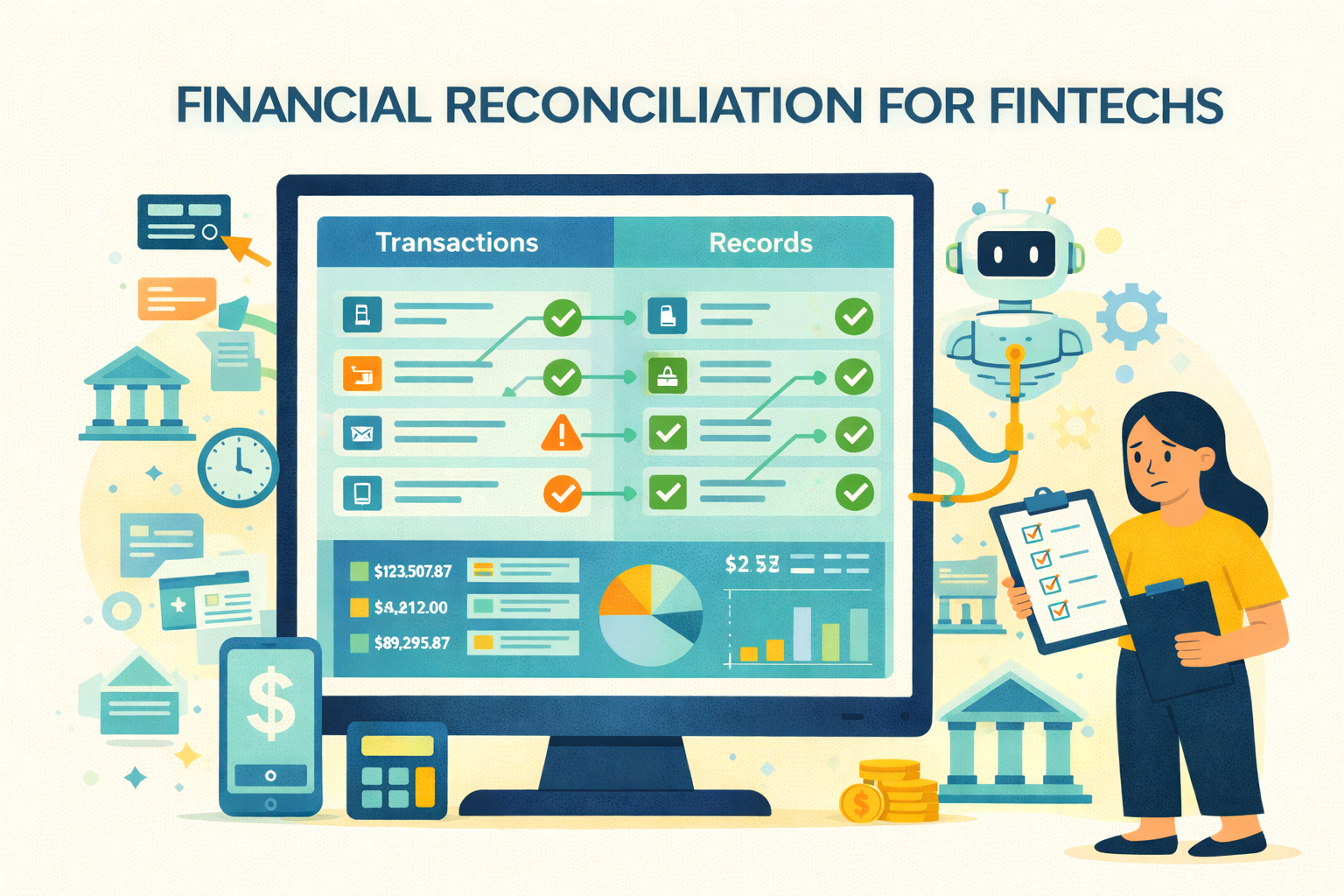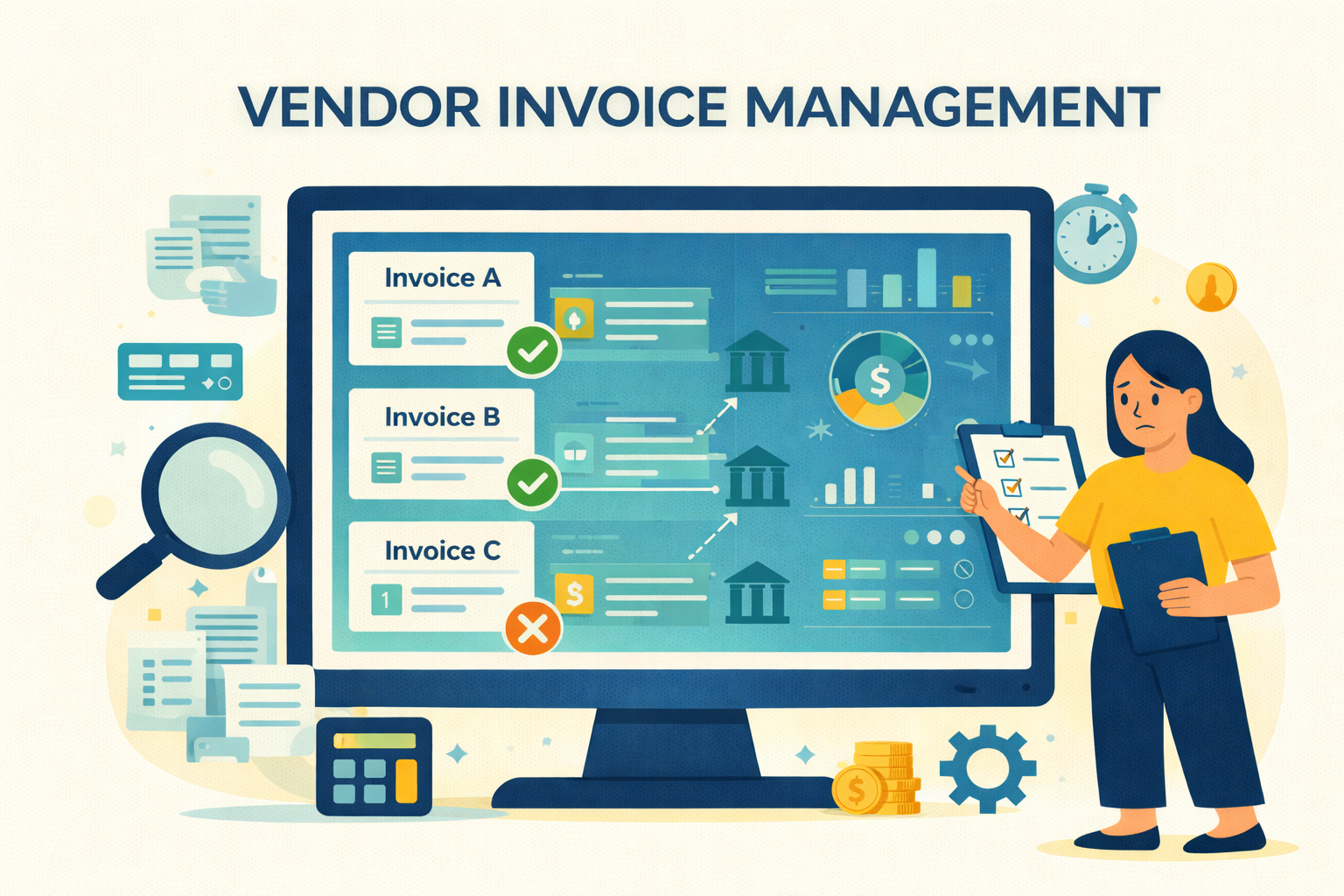Choose Automation for Instant Cash Application
What is Cash Application?
Cash application is the process by which companies match incoming payments to their corresponding invoices and the account that records the payment. The company cannot utilise the money received until the payments have been properly reconciled. Funds will not be available to use for employee salaries, bills or investment opportunities. Therefore, it is extremely important to establish a cash application process that is fast, efficient and secure.
What Does the Process Look Like?
Let us take an e-commerce website as an example. Typically, a customer visits the site and selects the desired item. They complete the checkout process. The website generates an invoice with the total amount due for the customer's order. The customer pays for the order through one of the available payment options on the website, such as credit card or UPI. The payment gateway verifies the payment information and processes the transaction.
The accounting department receives a notification of the payment. They make a record of the payment and its details and match it to the outstanding invoice. An account receivable balance is generated to represent the amount of money that the company is owed. If the payment is successful, it is applied to the accounts receivable balance. This reduces the amount owed by the customer and the payment is reflected in the company's accounting records.
Once the cash application process is complete, the transaction is documented in the financial reports. The amount can now be used by the company to invest in resources and growth. In an ideal scenario, the cash application and invoice matching process goes smoothly and is performed instantly. In reality, during every step of the process, there is room for an error or mismatch.
What Could Go Wrong?
Before the digital age, the procedure was much simpler even though it was time consuming and tedious. Payments are verified with a remittance advice that contains information about it such as the customer's name and account number, the payment amount and date, and the invoice or account number. It helps the company match the payment with their accounts receivable and ensure that it is applied to the correct account. When transactions were made via cheques, a remittance advice would accompany it in the form of a paper document.
With the progress in technology, payments are now usually made through an array of digital methods such as credit card, electronic debit, UPI or wire transfers. The remittance advice arrives separate from the payment in the form of an email or an electronic file, making it hard to reconcile payments with their invoices.
Additionally, the financial operations may get delayed and more complex due to errors from the customer’s end. If the customer sends an incorrect payment amount or fails to provide the correct invoice number, it could cause issues in applying the payment to the correct account. If a transaction is disputed by the customer, it may result in delays in processing the payment or lead to a payment reversal. In some cases, they may even attempt to make fraudulent payments using stolen payment information or by trying to reverse legitimate payments.
Both the company and customers are likely to be deeply impacted by the consequences of an efficient process. If a payment is not made on time, customers may be dissatisfied with their experience. Repeated inconveniences will tarnish the company’s reputation and drive customers away. If the transactions are not properly matched, the financial report will contain inaccuracies and mistakes. This can cause the finance team to make incorrect forecasts and predictions and render them unable to accurately assess the company’s growth. The business may even suffer from a serious loss of revenue. Depending on the size of the company, hundreds or even thousands of payments may be made on a daily basis. With every payment, the potential for an issue rises and the cash application process becomes even more difficult and time consuming to navigate.
Automation - To the Rescue
The problems created by the complexity of technology can only be solved by technology itself. Modern accounting and automation can help create a more efficient process. The time taken and the chances of errors can be reduced.
Osfin is a bookkeeping software that can immediately match remittance advice to payments and invoices without the need for manual effort. In under a minute, millions of invoices can be reconciled and processed intuitively with AI-powered document processing. Payments from multiple sources, such as credit card payments, electronic debit payments, and wire transfers can be matched to their corresponding invoices immediately. You no longer have to scour your files for remittance advice. This ensures that all payments are accurately recorded and applied to the correct accounts.
Osfin can help detect fraudulent payments by verifying payment details against the system and flagging discrepancies for quick action to be taken. Eliminate service level agreement breaches and ensure correct payments are made to your valuable customers. The automatic dispute management system makes it easier than ever for you to identify and rectify errors. Use Osfin to help streamline the cash application process for your company. The platform can be customised to suit your needs as flawlessly as possible. With greater visibility and control over payments, you can manage your cash flow more effectively and utilise your funds whenever you need to Employing cash application process is an integral part of embracing modern accounting system.


